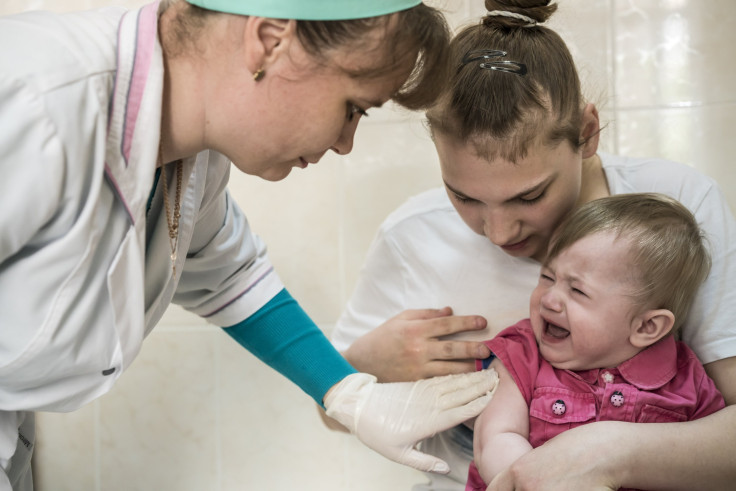Measles Spike Prompts CDC To Issue Warning For Summer Travel Season

In response to a noticeable spike in cases, the Centers for Disease Control and Prevention (CDC) has issued a measles alert, urging Americans to ensure they are fully protected against the disease before traveling internationally this summer.
In its new guidance, the public health agency emphasized the importance of receiving two doses of the measles-mumps-rubella (MMR) vaccine at least two weeks before visiting regions with active measles outbreaks.
According to the CDC, two doses of the MMR vaccine provide 97% protection against the measles virus. Unvaccinated individuals are at a significantly high risk of falling ill, even with brief exposure to the virus. The CDC stated that one can contract measles by simply being in a room where an infected person has been, up to two hours after their departure.
The CDC recommended that children receive their first MMR vaccine dose between 12 and 15 months of age, and the second dose when they start kindergarten, typically around 4 to 6 years old. Teens and adults who have not received the vaccine should get two doses, with a minimum gap of 28 days between them.
The warning came after the CDC reported a spike in measles cases in the United States. As of June 8, there have been 16 reported cases in 2023, compared to 3 during the same period in 2022. Eighty-eight percent of these cases have been linked to international travel, with the majority of patients being unvaccinated.
Recent cases in Fresno County, California, further emphasized the importance of vaccinations in protecting communities. Health officials confirmed two measles cases within one household, with no clear source of infection.
"These cases are reminders of the critical role of vaccinations in protecting the community. We urge all parents to please work with your pediatrician or contact the health department to help get your child up-to-date on vaccinations," Dr. Rais Vohra, Fresno County's health officer, said in a statement to NBC News.
Measles outbreaks are not limited to the United States but are also occurring globally, particularly in countries such as India, Indonesia, parts of the Middle East and much of Africa. The United Kingdom has also seen an increase in cases this year compared to the previous year.
To prevent measles outbreaks, the CDC recommended a community vaccination rate of 95%. However, vaccination rates have declined during the pandemic, leaving pockets of vulnerability.
In a joint report released last November, the CDC and the World Health Organization (WHO) highlighted that a record-high 40 million children missed at least one dose of the measles vaccine in 2021, emphasizing the imminent global threat posed by the virus.
It is important to note that there is no specific antiviral treatment for measles, and the symptoms typically include a high fever, cough, runny nose, watery eyes and a distinctive rash that appears within the first week of illness, per the CDC.
Infants and young children are particularly vulnerable to severe complications, including brain swelling and death, while pregnant women infected with the virus may experience premature birth and low-birth-weight babies.



























